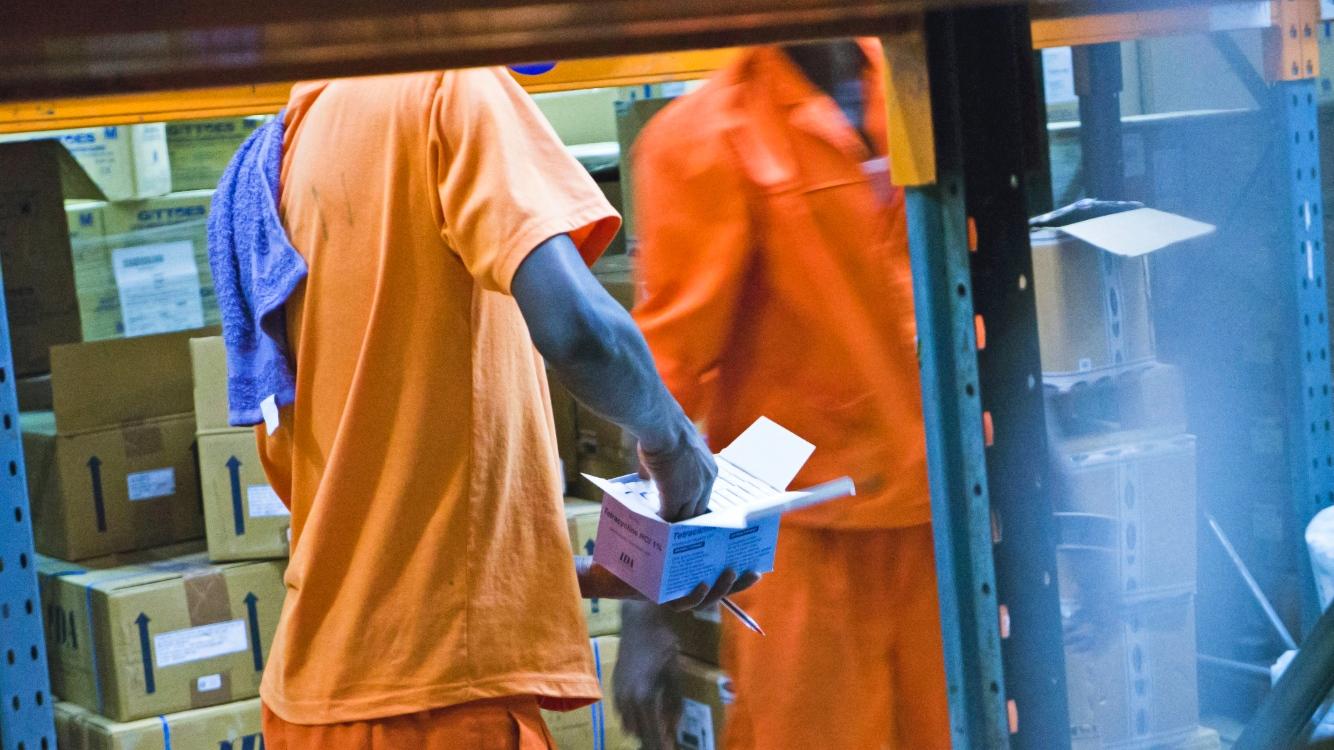The humanitarian response to the DRC’s Ebola health emergency between 2018-20 was met with popular resistance by local populations, drawing attention to the perceived failures of humanitarian responses in the country over decades. To declare Ebola a health disaster was to reveal the disease’s connections with politics, in sharp contrast to the lack of protection provided to those living through daily violent atrocities.
This post is part of the public authority series from LSE’s Centre for Public Authority and International Development at the Firoz Lalji Institute for Africa. Fieldwork was additionally supported by the LSE Conflict Research Programme.
Policy responses to pandemics such as COVID-19 and Ebola have triggered many forms of resistance all over the world. While much of such resistance against COVID-19 responses directly targeted lockdown measures and others reducing people’s freedom of movement, in the case of the Ebola pandemic in eastern Democratic Republic of Congo (DRC) from 2018-20, the health emergency triggered popular defiance against humanitarianism at large. Local populations in the affected province of North Kivu not only seemed sceptical about the existence of the new epidemic, despite its devastating impact, but they also started attacking Ebola treatment centres (ETCs), health workers and caregivers, all of which seriously disrupted the response and restricted access to affected communities.
The fierce reaction against what was considered yet another humanitarian intervention was symptomatic of the many structural and cyclical problems the affected region had been going through for several decades. It expressed a multilayered response against international donors, humanitarians and Congolese authorities alike, and against their ineffectiveness in providing security and creating lasting peace in areas hit by protracted conflict. In their reaction, people prioritised security above health provision and felt abandoned by those they expected to care about them.
The attacks and other forms of resistance against ETCs, health workers and humanitarians providing assistance were carried out by various actors, including armed groups, customary chiefs, state agents, health-care workers, patients and their families. Guiding it was the widespread belief that the disease was invented by outside actors to a) exterminate the population; b) test new vaccines by multinationals; or c) capture funding from donors to the benefit of international organisations, NGOs and the central government in Kinshasa. Beyond this local discourse on the origins and objectives of the response, local populations have taken advantage of the attention paid to this pandemic to demand an improvement of their overall living conditions. The Ebola health crisis was used as a space for protest and to express frustration with the priorities as part of humanitarian responses.
Explaining resistance to Ebola responses
Explanations of such resistance are usually informed by two different points of view. The first is a culturalist interpretation, which considers resistance against Ebola responses as a manifestation of a ‘backward’ worldview by ‘backward’ populations. Such a worldview, it is argued, should be reversed by means of ‘sensitisation’ campaigns to encourage compliance with rational, top-down humanitarian responses. The other view is a socio-anthropological perspective, arguing that Ebola responses should adapt to local realities to be effective and sustainable. Both views reflect a belief that resistance to Ebola responses conceals something irrational, exotic, particularly African and apolitical, which the first perspective wants to see erased and the second to be integrated into existing policies.
But there is more. Resistance against the Ebola response in eastern Congo not only became an expression of refusal ‘in the face of the impersonal and dehumanizing patterns of health interventions’. It was also a way to express political demands and ask for improvements in existing living conditions more broadly. People in North Kivu, for example, used the way their bodies were treated in health centres to claim the larger right to a decent life and existence: the ‘body usually denied and ignored was exposed as a political vector’.
Affected by the Ebola disease, the local population was recognised only as a victim of a health crisis. Their resistance should therefore be considered as a form of political activism, expressing the contestation of a selective and ineffective local and international humanitarianism. The lack or even the inability of the response strategy to acknowledge and adapt to the local context (see for instance the lack of knowledge of local languages, the exclusion of family members at the funerals of Ebola victims or the ignorance of death rituals, the hyper-security and militarisation of response interventions, conflicts of interest in the face of a team composed mainly of foreigners, and so on) only reinforced the will to resist. Popular calls not only addressed the heath interventions but also expressed deeper political demands centred on the existence of a pandemic and the deployed intervention dealing with it.
The populations of North Kivu, moreover, have understood that the Ebola Virus Disease mobilised international institutions much more than the phenomena that killed them on a larger scale, such as armed conflict, malaria and all those pandemics linked to problems of hygiene and sanitation – issues that the Congolese State has long since ceased to address.
A humanitarian response revealing a deeper politics
This popular resistance against the Ebola response during the 2018-20 epidemic in North Kivu has shown how such acts cannot be detached from their larger meaning and local context. To declare Ebola a health disaster was, without saying so explicitly, to reveal the disease’s connections with politics. It highlighted how all other disasters were ignored, trivialised and met with an indifferent international community. But these other disasters and living conditions had already constituted the backdrop to the local population’s lives for several years. The care and prevention advocated by the response to Ebola was directed at those whose lives had to be saved yet was in sharp contrast to the lack of protection provided to those who had to live through daily atrocities and for whom staying alive often was nothing short of a miracle.
For all those people living in the affected area, the unpredictability of Ebola and its capacity for harm did not produce a rupture or a discontinuity in their usual way of life. Material and security conditions mattered as much as life’s biological conditions. The situation teaches us that while it is fashionable to worry about a life immediately threatened, our concern should count for all lives in danger, no matter the cause – not only when it comes to Ebola, but also when it comes to rape and killings. These acts of resistance in North Kivu asked for the recognition of all life and all human existence, which indeed goes beyond the biological or the medical and cannot be reduced to one dimension.
Photo: DRC: A Trip to the Front Lines of the Fight Against Ebola. 17 January 2019 – Beni, North Kivu region, Democratic Republic of Congo. Credit: World Bank / Vincent Tremeau. Licensed under CC BY-NC-ND 2.0.





